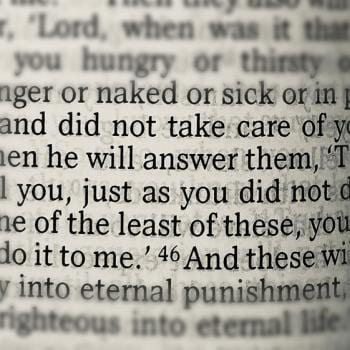
The big question of “What is Enough?” kept arising in the midst of this decision to retire early and respond more fully to God’s call to devote my working hours to my writing world.
What is “enough” when it comes to retirement finances? Some major financial publications have said things like “Have in savings/investments at least 11 times current annual income.”
Some say we’ll need much more than that because this generation of retirees have far higher expectations for our comfort and entertainment prospects. Indeed, we are living much, much longer than previous generations. Furthermore, many retirees or near-retirees are needing to take parental roles with their grandchildren, AND savings-depleting medical bills hit a huge number of people.
From a retirement seminar I attended last year for clergy, I learned that the pension system of The United Methodist Church is set up to provide for about 1/3 of the financial base of retirees. Social Security and personal savings and investments are expected to supply the rest, each with a 1/3 approximate share.
I suspect that 1/3 figure is true for those who have served pretty well their entire working life in the UMC. For me, my pension will provide about 9% of projected needed income.
Because I’ve never been in a high pay job, and did, along with many women of my generation, spend years at home rearing my children and then many more years in volunteer work, my Social Security benefit isn’t exactly going to lift this financial boat very high above the deep well of poverty.
There is no cause for pity here. Thanks to my mother’s careful handling of finances and a very generous brother and sister, I own a house. I’m lucky. Many clergy who have served out their ministerial lives living in church-provided parsonages will find retirement housing a real issue.
I would simply love to move into that house, so lovingly designed by my mom and dad, full of family memories, and with very possibly the best writing spot ever seen. Should I move in, I will be greeted and embraced by the neighbors who had been such an integral part of my parents’ lives.
Quiet and peace permeate the house. Light streams into every room; expansive views give mental; space to think and breathe.
But . . . it will not be. I grieve giving it up, but practicality says, “Don’t do it.” The house is large, it is aging, and it will mean being house-poor to live there. Even a reverse mortgage won’t solve the money crunch.
Selling it, however, does give me a way to say, “I have enough.”
However, even this “enough” becomes possible because I have chosen to redefine for myself what “enough” is.
I know that my definition of “enough” lands on a figure wholly inadequate to some, especially those who write for financial advice publications, but it also lands on a figure unimaginably generous to others.
According to one survey I found, the researcher estimates that “Two-thirds of working households age 55-64 with at least one earner have retirement savings less than one times their annual income, which is far below what they will need to maintain their standard of living in retirement.”
That’s scary.
And that may be where a number of clergy are right now.
I spent the first part of last week at a retreat as part of the Clergy Fruitfulness Initiative. One conversation I had during that time suggested that I might be serving as a model to encourage other clergy to be more intentional and thoughtful about their own retirement plans.
I know it has meant a lot to me to retire at a point of deep satisfaction with ministry, rather than a point of unhappiness or despair.
That sense of satisfaction helped me to approach this life change time with lowered anxiety and a clearer head. I was able to hear with less fear “It is time to let this go and move in a different direction.”
The UMC is top-heavy with older pastors. Younger clergy have wondered if the older ones will get out of the way soon enough for them to bring the power of their call, along with their talents and energies, to the ministry. With mandatory retirement age now at 72, they have a legitimate concern.
I also suspect that lining up all the older clergy and shooting every tenth one (every fifth one?) probably is not the best of all solutions to this issue.
But as with so much else in ministry, many older ones find themselves in an impossible bind. Those who worked on a lower end of the pay range, and, as I mentioned before, lived in parsonages, may simply not be able to redefine “what is enough?” in a way that is at all palatable.
I also think money should never be the primary driver of our decisions. We are too easily deceived by the moving target of economic security to expect to hear clearly the voice of God through the noise of financial pressures.
But could this be a place where our clergy covenant is showing serious flaws? We say we are in this together, but there is a clear difference in retirement prospects from the clergy whose itinerancy meant 20 to 30 years in a single high-steeple/high-pay church with a fully paid off house and the one who moved every two to three years to smaller, rural parishes never rising much beyond minimum pay requirements set by the Conference and owning no real estate.
Had I not inherited the house I am selling, I would be in desperate shape economically right now. It made this decision far more possible. Yet I believe that had I not inherited, I would still be called into a different ministry now. I see how God has been shaping me for this, even as I poured myself into local parish work and the active making and shaping of disciples of Jesus.
I also know there are those in our pulpits right now who have lost their passion and purpose and are just trying to hang on until their pensions are adequate for them to leave.
That hurts all of us. I knew I didn’t want to live as one of those.
Recently an artist who is collaborating with me on a book project stopped in my office with some sketches and asked, “Have you hit the panic button yet?”
He, too, had retired early, forfeiting some benefits and security for the sake of following his passion. He said that as his retirement day approached, along with his last paycheck, he thought about saying, “Hey, wait, this was all a joke! I’m not really leaving.”
The regular paycheck–I can feel its allure, see the tempter saying, “All you have to do is bow to the god of money and you’ll be so much better off.”
But at what cost?
This is a post full of questions and with few answers. I find myself wishing there were some way for those who sense that they have given all they have to the never-ending needs of the ministry to be able to move out with far better support than is currently available.
It is hard to hear God’s voice when fear screams in our ears.












